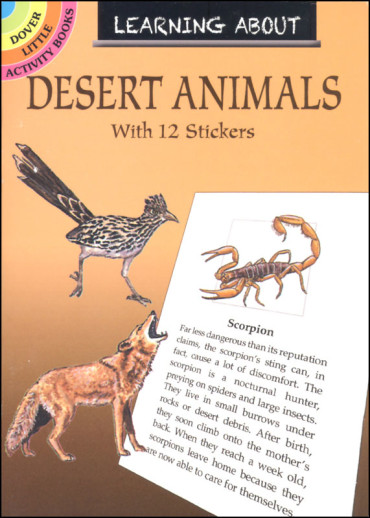We use cookies to make your experience better. To comply with the new e-Privacy directive, we need to ask for your consent to set the cookies. Learn more.
Learning About Desert Plants
This easy-to-read book introduces you to a variety of vegetation that is able to survive in some of the earth's most arid regions, the American deserts. Fact-filled captions describe a dozen desert plants, including the Spanish bayonet, fishhook cactus, spotted langloisia, Coulter's lupine, Indian blanket, and seven others. Plus, 12 realistic full-color stickers of each plant are also included — apply them to the appropriate space on each page.A great way to learn about desert vegetation, this little volume will also appeal to teachers, parents, and other adults looking for affordable and entertaining learning skills for youngsters.
These fascinating little books will captivate young readers and animal lovers. Each book has 12 pages, each featuring a different animal, plant, or mineral. The paragraph provides basic but interesting facts about the object. The book also includes 12 colorful stickers.

